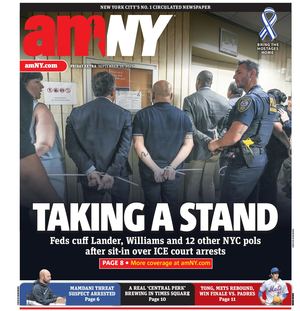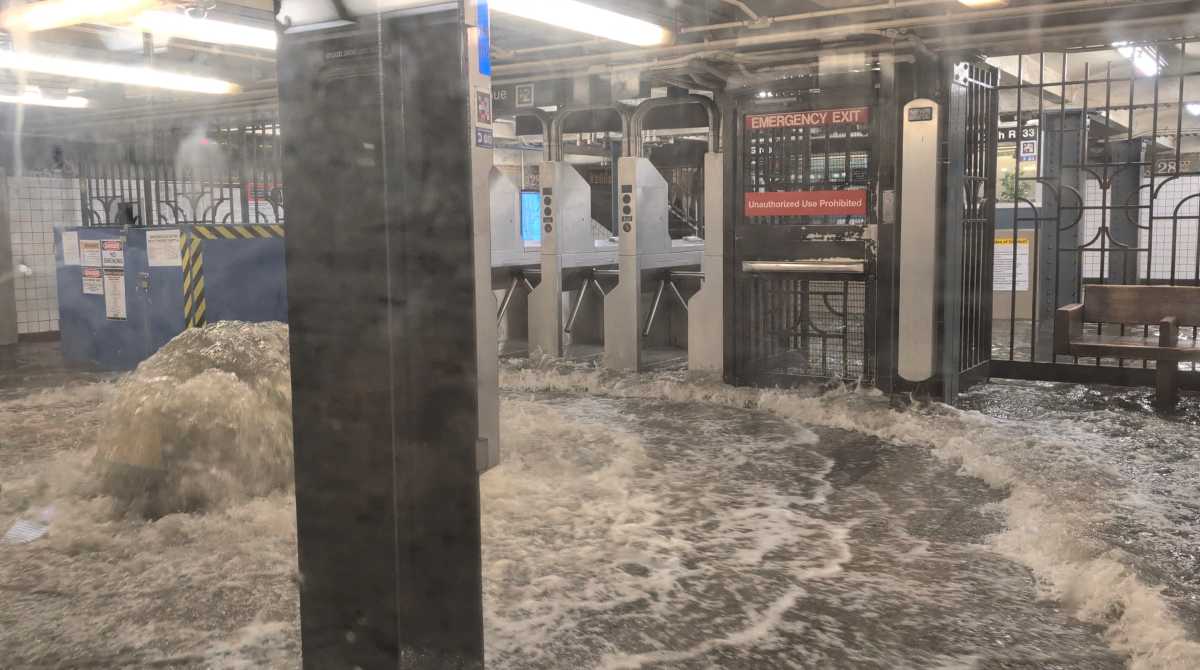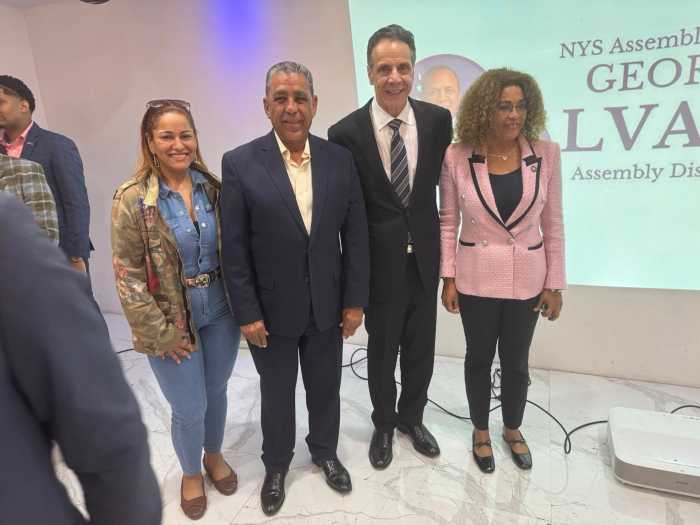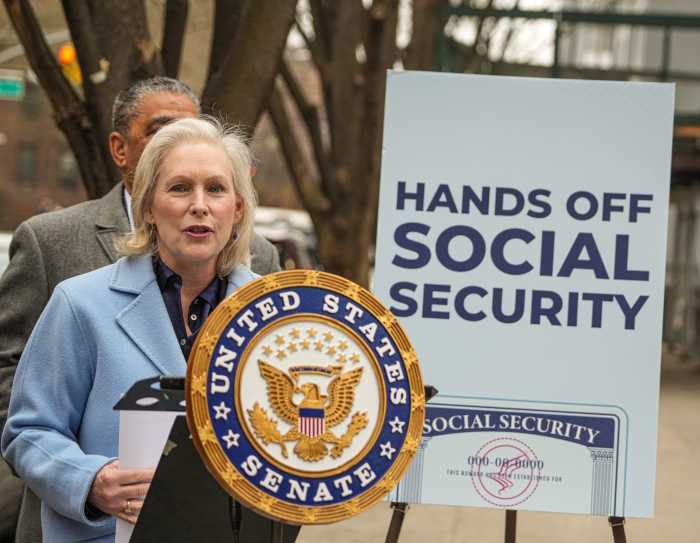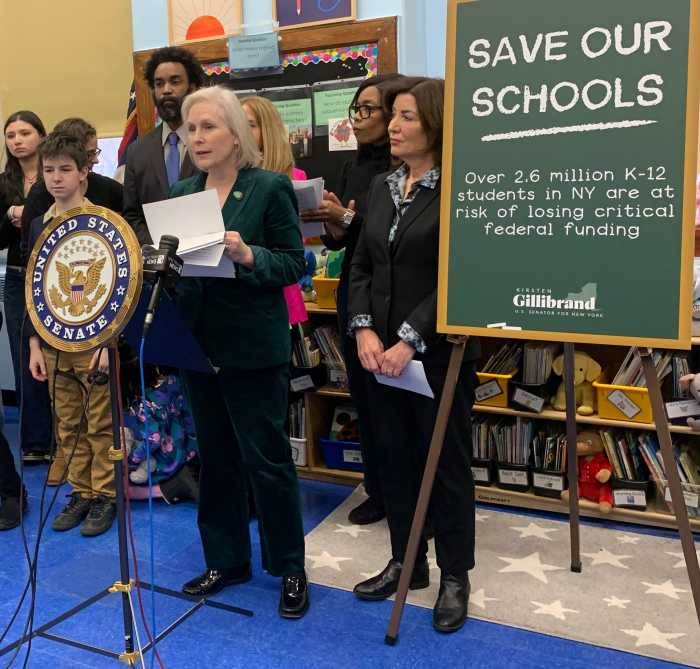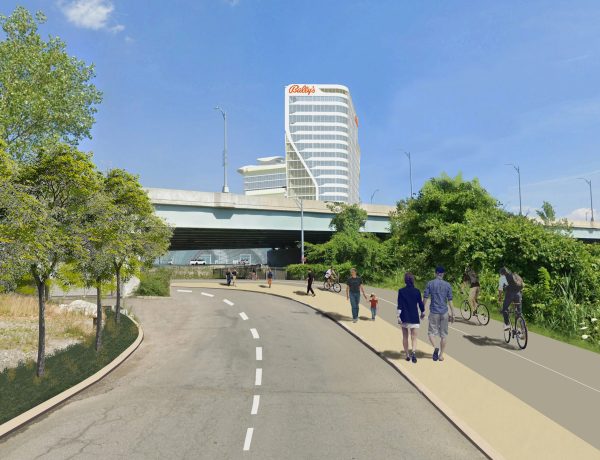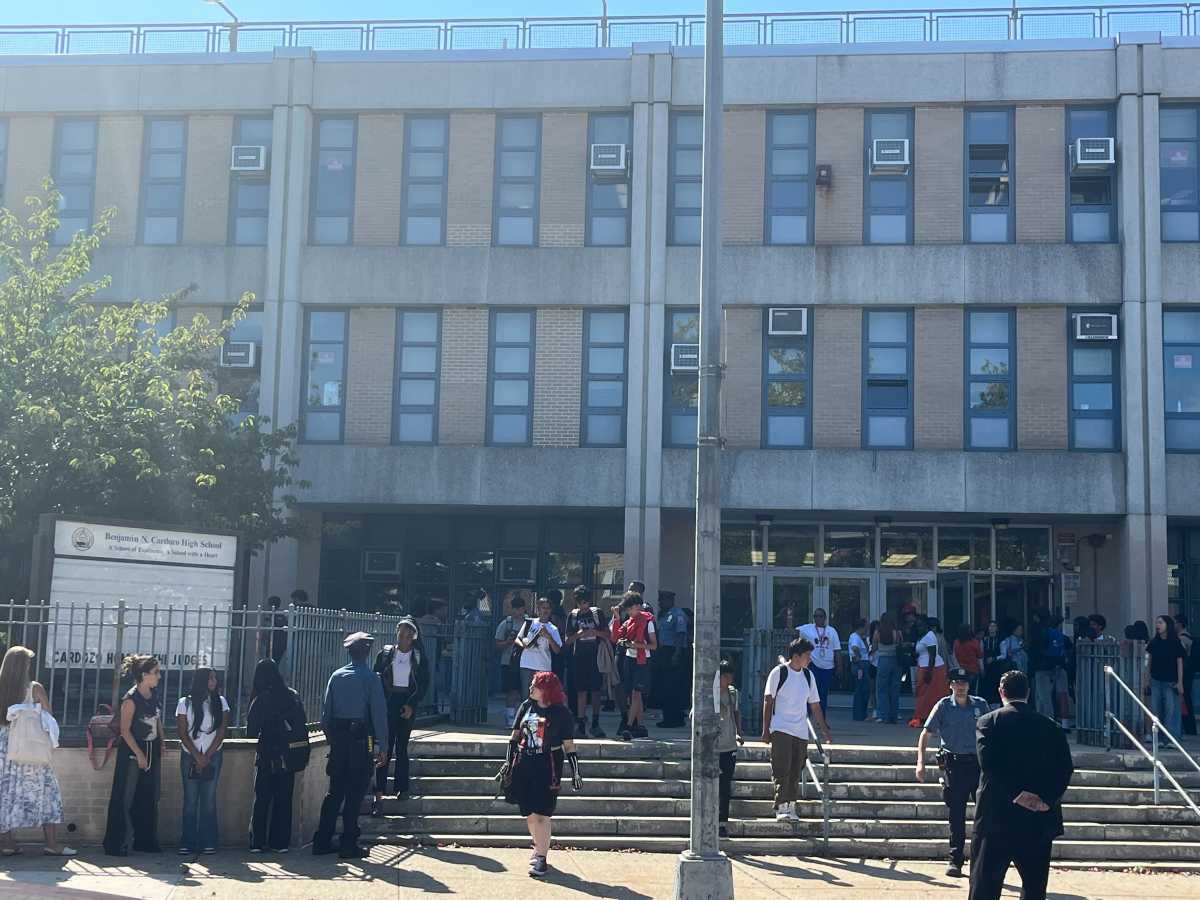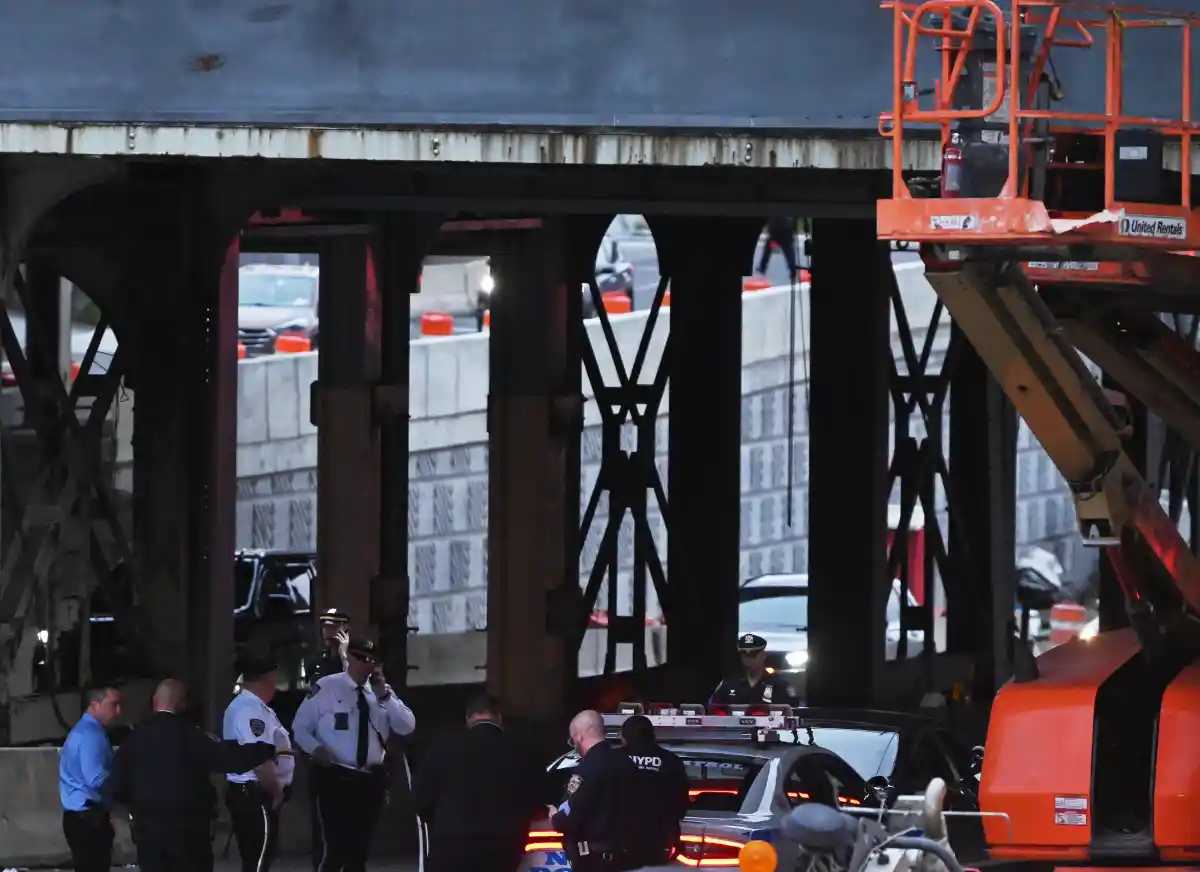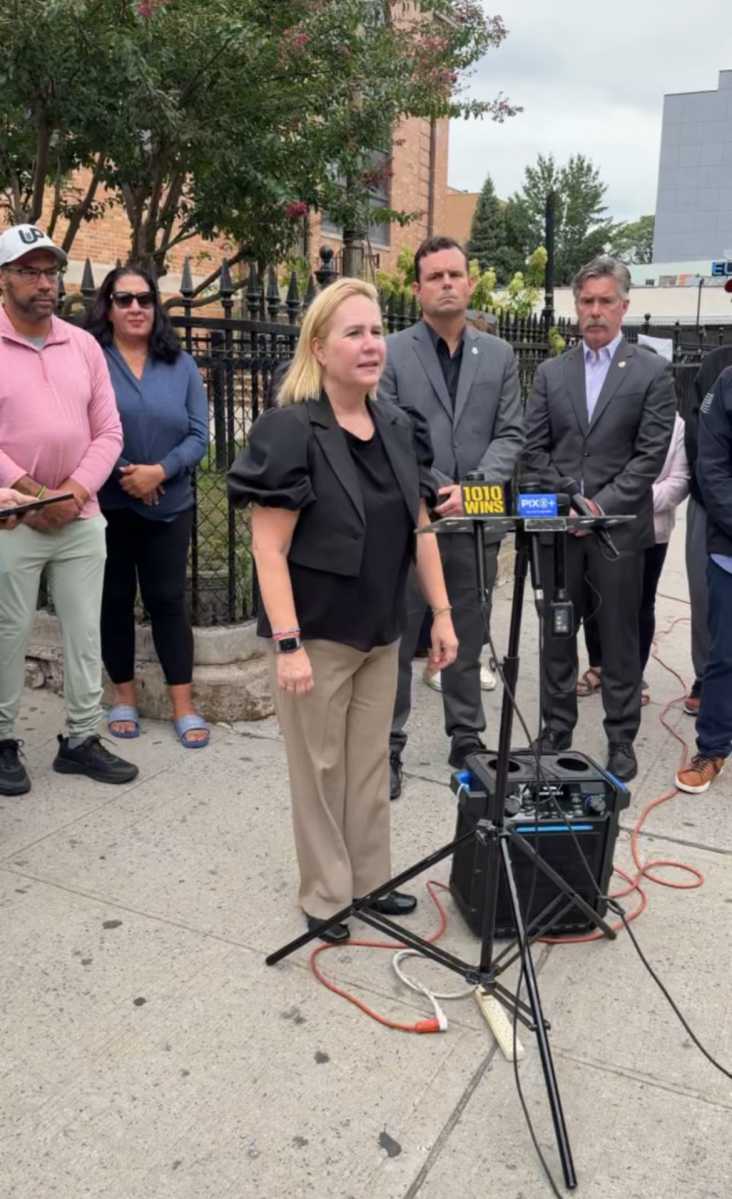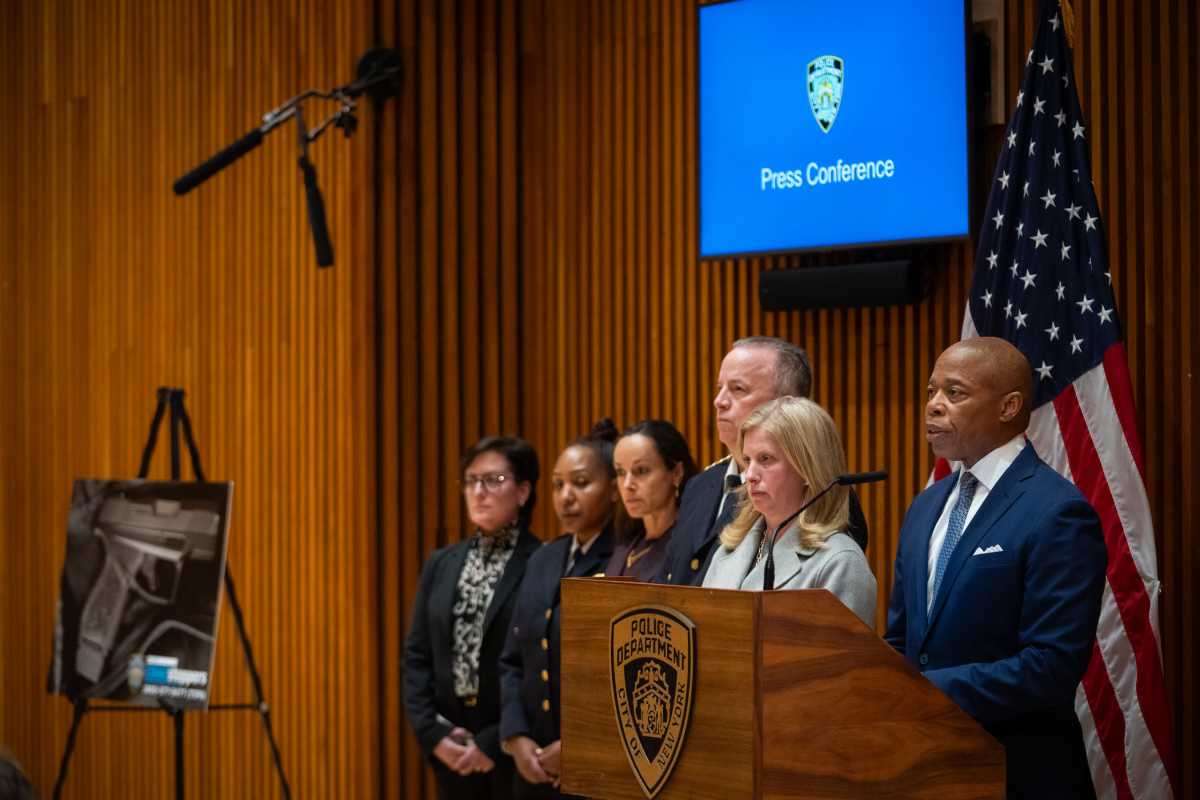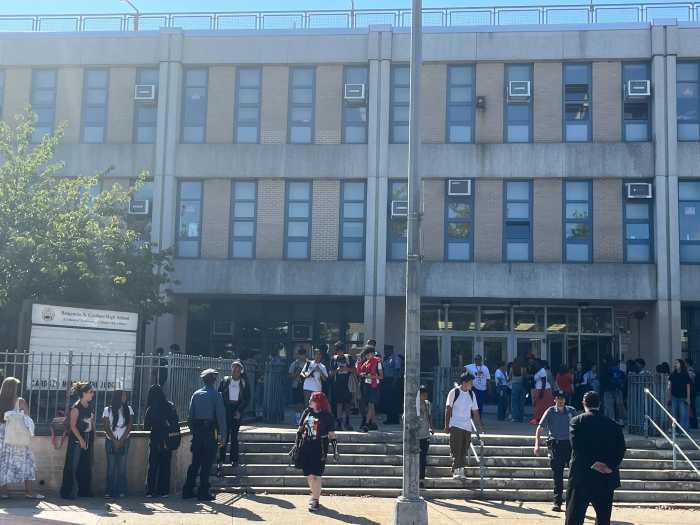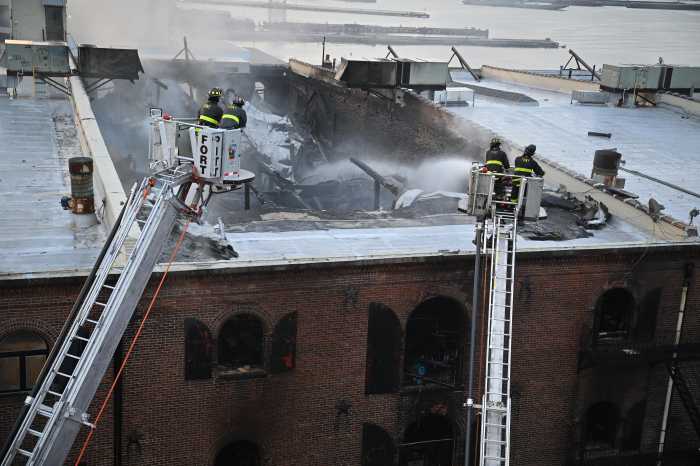NYC politicians are reacting with concern, demanding that more needs to be done to keep commuters safe after several subway stations were pummeled with stormwater and sewage following Monday night’s torrential downpour.
The MTA blamed the watery chaos in some stations, including the 1 train’s 28th Street stop in Manhattan, on a city sewer system that is not designed to handle the alarming 2.5 inches of rain that fell in only an hour over Central Park.
“The social media video tells us an important story that we have to deal with, which is that the city’s sewer system — the stormwater management system that goes through the subway stations — doesn’t have the capacity to deal with rainfall in excess of a 1.5 to 1.34 inches,” Janno Lieber, MTA chair and CEO, said during a TV interview on Tuesday.
City officials did not disagree Tuesday, noting that the aging sewer system is only designed for less than 2 inches of rainfall per hour. Anything more than that will likely lead to street and subway station flooding, as it did in the shocking viral videos of the July 14 storms.
Seeking ‘Resilient Transit’ amid floods
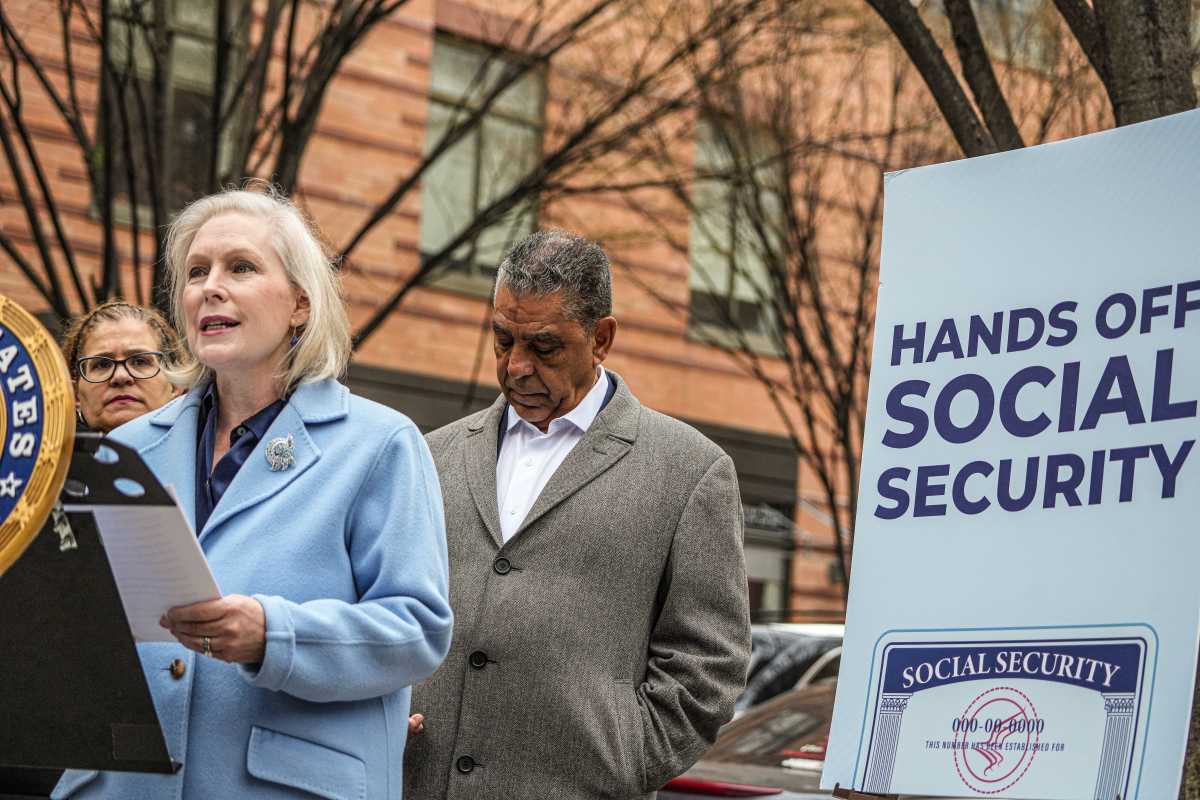
In response to the chaos, U.S. Sen. Kirsten Gillibrand and Rep. Adriano Espaillat, both representing New York, announced the Resilient Transit Act of 2025 — a federal bill that would provide a dedicated stream of federal funding to strengthen the resilience of the United States’ public transportation systems.
Delving deeper into the bill, it would authorize an additional $300 million from the Highway Trust Fund’s mass transit account for Fiscal Year 2026 for resilience improvement grants and distribute the money in accordance with the existing State of Good Repair Grants Program formula.
“Public transportation systems already lack sufficient resilience funding, and increasingly frequent extreme weather events precipitated by climate change will disrupt and damage future public transit function,” Gillibrand said. “Public transit ridership continues to increase year over year, thereby increasing the necessity of functioning public transit systems. I am committed to improving the reliability of public transit for the millions of Americans who rely on it each and every year.”
But the bill is nothing new. Both Gillibrand and Espaillat first introduced it in 2022 and again in 2023.
According to a press release, Gillibrand passed portions of her Resilient Highways Act as part of the Bipartisan Infrastructure Law in 2021, including provisions to relocate and raise roads out of zones at risk of floods or slides and construct protective infrastructure to mitigate flood risk.
Strong storms are ‘no longer rare’
Meanwhile, NYC Council Member Selvena Brooks-Powers said she was “deeply alarmed” by the mass flooding that plagued the transit system.
“I commend the transit workers who responded quickly and worked tirelessly to restore service, but it’s clear that our infrastructure is not keeping pace with the frequency of extreme weather events,” said the council member, who is chair of the Council Committee on Transportation and Infrastructure.
She also said she would do more to improve the city’s lackluster drainage systems, which most officials agree are causing the water backlog in the stations.
“These storms are no longer rare. They are becoming the new normal,” she said. “I will continue to press for urgent investment in storm infrastructure, modernized drainage systems and stronger emergency response protocols. We cannot afford to delay. Protecting our transit system means protecting the lives, livelihoods, and mobility of millions who depend on it every day.”
Members of the Permanent Citizens Advisory Committee to the MTA (PCAC) reacted to the 28th Street water inundation and agreed that officials need to invest more in flood protection.
“The 28th Street geyser shouldn’t be the expected rule, but a rare exception, and we’re impressed that MTA crews were able to restore service across the system in time for the morning rush,” said Lisa Daglian, executive director of PCAC.
She added that items such as subway grate covers and flood barriers are key tools recommended by the MTA’s Climate Resilience Roadmap.
“We look forward to many of these projects in the MTA’s 2025-29 capital plan, fully funded thanks to Governor Hochul and the legislature, that will help make the MTA more resilient to our new normal,” the transit advocate added.
Also Read : https://www.amny.com/lifestyle/eat-and-drink/how-josh-capon-built-lasting-career-kitchen/
